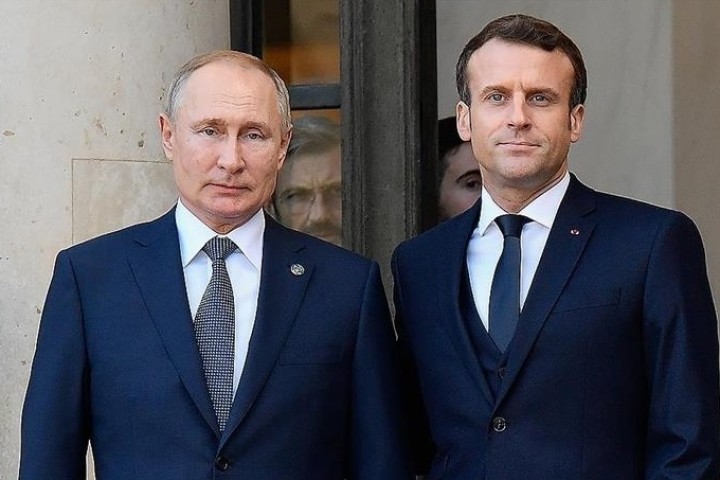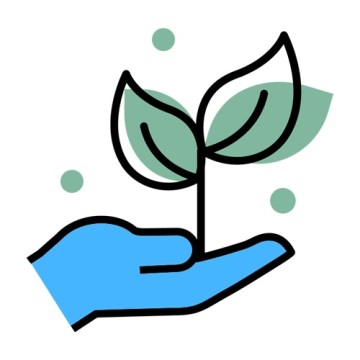France is EU’s first importer of ‘Russian nuclear products’: study

In 2022, EU countries imported Russian nuclear industry products, such as nuclear fuel, compounds and parts for reactors, worth €720 million – 22% more than in 2021, according to Eurostat data cited by Forum Energii in an article published on 5 September.
France is now the leading importer of “Russian nuclear industry products”, with €359 million worth of imports in 2022, a jump of more than 250% compared to 2021.
According to the think tank, French purchases mainly focus on recycled fuel, without excluding more global agreements on maintenance or management systems.
In other words, “cooperation between the two countries is very close”, which, according to Forum Energii, “fits in with Russia’s strategy of building further areas of EU dependence on Russia.”
A dependent EU?
Teva Meyer, a specialist in civil nuclear energy at the University of Haute-Alsace, is more cautious, however.
He told Euractiv France that the figures for imports of Russian products must be “smoothed over several years because there are a lot of fluctuations”.
In 2020, for example, France imported only €145,000 worth of Russian nuclear products, according to Forum Energii. Over the past 13 years, the average has been around €195 million per year.
But the Polish think tank’s conclusions echo those of Greenpeace.
In a report published in March, the activist NGO also considered imports of Russian-enriched uranium into France to be a form of dependence.
The French Society for Nuclear Energy (SFEN) reacted sharply to these accusations at the time, stating that “France is one of the few countries in the world to have a complete nuclear fuel production chain on its soil,” covering conversion, enrichment, and assembly.
French enrichment plant owner Orano plans to increase capacity by a third by 2028.
Although it imports Russian-enriched fuel, France is not controlled by Vladimir Putin’s Russia, the SFEN concluded.
Transit routes
According to Greenpeace, even more controversial are Russia’s transit routes for natural uranium from Kazakhstan, which will account for almost a quarter of the EU’s needs in 2021.
The NGO points to alternatives, such as the Black Sea or the Transcapian International Transport Route from China, whose potential could be improved. Moreover, “in case of emergency, aircraft could be a possible means of transport, as uranium is not very voluminous,” Valérie Faudon, director general of SFEN, told Euractiv France.
Despite these alternatives, the route to Russia remains the shortest and cheapest, advantages offered to European trading partners.
Another thorny issue is nuclear fuel. Like oil and gas, imports of Russian nuclear fuel is essential for countries like Hungary, Slovakia, the Czech Republic and Bulgaria – all of which operate nuclear reactors of Russian or Soviet design.
With regard to these countries, and Hungary in particular, Russia is pursuing a “carrot-and-stick policy in energy”, notes Forum Energii.
“The carrot is preferential contracts with countries friendly to Russia to further make them dependent on Russian raw materials and deepen energy-political relations,” the Polish think tank explains.
Diversification
The Czech Republic and Bulgaria are diversifying their fuel suppliers. Sweden, the largest buyer of Russian-enriched uranium in 2021, has reduced its purchases to zero, while Finland is now saying no to any new Russian reactors.
While the Hungarian government and French nuclear manufacturer Framatome signed a long-term cooperation agreement in mid-September for fuel supply, Hungary maintains its close relationship with Russia.
As a result, every round of EU sanctions against Russia is met with a refusal from Hungarian Prime Minister Viktor Orbán.
But there is nothing to stop Russia from threatening to cut off supplies to the EU.
In the short term, the situation would be manageable and ” would not result in immediate serious consequences for the EU energy industry”, says Forum Energii. France, in particular, has uranium and fuel reserves that can last for several years.
However, the think tank adds that the situation could be different in the medium and long term if alternatives are not found quickly.
In a report published in July, the French Observatory for the Security of Energy Flows and Materials, which works with the country’s Defence Ministry, noted that “the idea that the market is free of tensions has prevailed, delaying the realisation of the role played by Moscow.”
The situation is all the more worrying given a renewed interest in nuclear energy in the EU.
Sanctions
Because of Hungary’s veto, the EU is still not considering sanctions on countries that import Russian nuclear products. Discussions have been ongoing for some time but were not reflected in the 11th sanctions package adopted in July.
Although the European Commission has not yet formally proposed a 12th sanctions package, according to a Brussels source, it is currently difficult to envisage the introduction of materials related to the nuclear industry.
Ultimately, “the aim of a sanction is to punish the other party more than oneself,” said Maxence Cordiez, head of European public affairs at the French Atomic Energy Commission (CEA).
While the situation is less complicated for France, “it is more sensitive for Eastern European countries operating Soviet or Russian reactors, and, more generally, for Western countries because of their dependence on Russian enrichment services,” he told Euractiv France.
Euractiv understands that the nuclear industry is looking to set long-term targets to make the EU less dependent on Russia for its nuclear services and products rather than sanctions, which would effectively take the form of degressive quotas along the lines of what the US has been doing since the 1990s.
Until the EU becomes fully or partially independent of Russian resources, maintaining the status quo “is unfavourable for the EU and increases its vulnerability to blackmail from Russia,” the researchers at Forum Energii conclude.
La Russie a prouvé que de nombreuses sanctions n’affecteraient pas ce pays.
The problems created in Africa has made this occur, as they've turned against the EU.
We need a change of direction and a new sensible leadership. Trade,trade,trade is the key
"The Czech Republic and Bulgaria are diversifying their fuel suppliers. Sweden, the largest buyer of Russian-enriched uranium in 2021, has reduced its purchases to zero, while Finland is now saying no to any new Russian reactors." France please do the right thing too.

